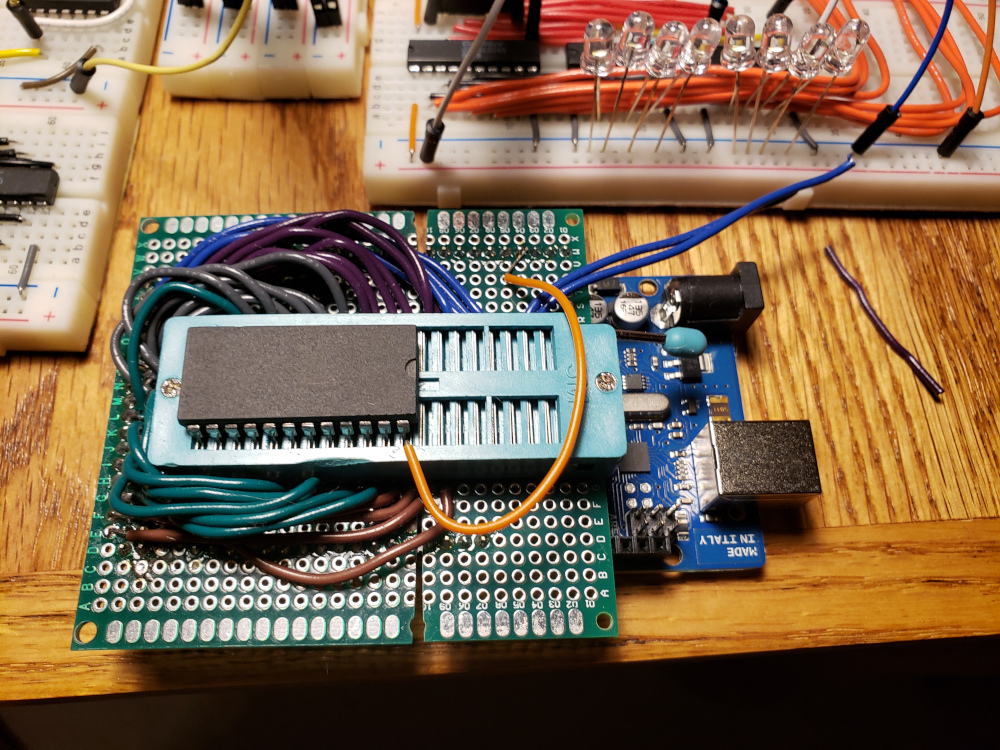1
2
3
4
5
6
7
8
9
10
11
12
13
14
15
16
17
18
19
20
21
22
23
24
25
26
27
28
29
30
31
32
33
34
35
36
37
38
39
40
41
42
43
44
45
46
47
48
49
50
51
52
53
54
55
56
57
58
59
60
61
62
63
64
65
66
67
68
69
70
71
72
73
74
75
76
77
78
79
80
81
82
83
84
85
86
87
88
89
90
91
92
93
94
95
96
97
98
99
100
101
102
103
104
105
106
107
108
109
110
111
112
113
114
115
116
117
118
119
120
121
122
123
124
125
126
127
128
129
130
131
132
133
134
135
136
137
138
139
140
141
142
143
144
145
146
147
148
149
150
151
152
153
154
155
156
157
158
159
160
161
162
163
164
165
166
167
168
169
170
171
172
173
174
175
176
177
178
179
180
181
182
183
184
185
186
187
188
189
190
191
192
193
194
195
196
197
198
199
200
201
202
203
204
205
206
207
208
209
210
211
212
|
// define pin mapping for ZIF socket
#define ZPIN3 53
#define ZPIN4 52
#define ZPIN5 51
#define ZPIN6 50
#define ZPIN7 49
#define ZPIN8 48
#define ZPIN9 47
#define ZPIN10 46
#define ZPIN11 45
#define ZPIN12 44
#define ZPIN13 43
#define ZPIN14 42
#define ZPIN15 41
#define ZPIN16 40
#define ZPIN17 39
#define ZPIN18 38
#define ZPIN19 37
#define ZPIN20 36
#define ZPIN21 35
#define ZPIN22 34
#define ZPIN23 33
#define ZPIN24 32
#define ZPIN25 31
#define ZPIN26 30
#define ZPIN27 29
#define ZPIN28 28
#define ZPIN29 27
#define ZPIN30 26
#define ZPIN31 25
#define ZPIN32 24
#define ZPIN33 23
#define ZPIN34 22
// define pin map for 28C16 EEPROMs
#define GND ZPIN20
#define VCC ZPIN32
#define WRITE_ENABLE ZPIN29 // E PIN 21 - Active LOW
#define OUTPUT_ENABLE ZPIN28 // E PIN 20 - Active LOW
#define CHIP_ENABLE ZPIN26 // E PIN 18 - Active LOW
#define ADDRESS_0 ZPIN16 // E PIN 8
#define ADDRESS_1 ZPIN15 // E PIN 7
#define ADDRESS_2 ZPIN14 // E PIN 6
#define ADDRESS_3 ZPIN13 // E PIN 5
#define ADDRESS_4 ZPIN12 // E PIN 4
#define ADDRESS_5 ZPIN11 // E PIN 3
#define ADDRESS_6 ZPIN10 // E PIN 2
#define ADDRESS_7 ZPIN9 // E PIN 1
#define ADDRESS_8 ZPIN31 // E PIN 23
#define ADDRESS_9 ZPIN30 // E PIN 22
#define ADDRESS_10 ZPIN27 // E PIN 19
#define IO_0 ZPIN17 // E PIN 9
#define IO_1 ZPIN18 // E PIN 10
#define IO_2 ZPIN19 // E PIN 11
#define IO_3 ZPIN21 // E PIN 13
#define IO_4 ZPIN22 // E PIN 14
#define IO_5 ZPIN23 // E PIN 15
#define IO_6 ZPIN24 // E PIN 16
#define IO_7 ZPIN25 // E PIN 17
const int ADDRESS_PINS[] = { ADDRESS_0, ADDRESS_1, ADDRESS_2, ADDRESS_3, ADDRESS_4, ADDRESS_5, ADDRESS_6, ADDRESS_7, ADDRESS_8, ADDRESS_9, ADDRESS_10 };
const int IO_PINS[] = { IO_0, IO_1, IO_2, IO_3, IO_4, IO_5, IO_6, IO_7 };
void setAddress(int address) {
for (int i = 0; i < (sizeof(ADDRESS_PINS)/sizeof(int)); i++ ) {
digitalWrite(ADDRESS_PINS[i], address >> i & 1);
}
}
byte readByte(int address) {
for ( int i = 0; i < (sizeof(IO_PINS)/sizeof(int)); i++ ) {
pinMode(IO_PINS[i], INPUT);
}
setAddress(address);
digitalWrite(OUTPUT_ENABLE, LOW); // output byte from eeprom
byte data = 0;
for ( int i = (sizeof(IO_PINS)/sizeof(int)); i >= 0; i-- ) {
data = (data << 1) + digitalRead(IO_PINS[i]);
}
digitalWrite(OUTPUT_ENABLE, HIGH); // stop eeprom outputting byte
return data;
}
void writeByte(int address, byte data) {
setAddress(address);
for (int i = 0; i < (sizeof(IO_PINS)/sizeof(int)); i += 1) {
pinMode(IO_PINS[i], OUTPUT);
delayMicroseconds(10);
digitalWrite(IO_PINS[i], data & 1);
data = data >> 1;
}
delay(10);
digitalWrite(WRITE_ENABLE, LOW);
delayMicroseconds(1);
digitalWrite(WRITE_ENABLE, HIGH);
delay(10);
}
void printContents(int start, int length) {
for (int base = start; base < length; base += 16) {
byte data[16];
for (int offset = 0; offset <= 15; offset += 1) {
data[offset] = readByte(base + offset);
}
char buf[80];
sprintf(buf, "%03x: %02x %02x %02x %02x %02x %02x %02x %02x %02x %02x %02x %02x %02x %02x %02x %02x",
base, data[0], data[1], data[2], data[3], data[4], data[5], data[6], data[7],
data[8], data[9], data[10], data[11], data[12], data[13], data[14], data[15]);
Serial.println(buf);
}
}
void eraseEEPROM() {
// Erase entire EEPROM
Serial.print("Erasing EEPROM");
for (int address = 0; address < 2048; address += 1) {
writeByte(address, 0xff);
if (address % 64 == 0) {
Serial.print(".");
}
}
Serial.print(" done.");
Serial.println();
printContents(0, 2048);
}
void setup() {
Serial.begin(57600);
// SETUP CHIP
// power chip
pinMode(VCC, OUTPUT);
digitalWrite(VCC, HIGH);
pinMode(GND, OUTPUT);
digitalWrite(GND, LOW);
// write disabled
pinMode(WRITE_ENABLE, OUTPUT);
digitalWrite(WRITE_ENABLE, HIGH);
// output disabled
pinMode(OUTPUT_ENABLE, OUTPUT);
digitalWrite(OUTPUT_ENABLE, HIGH);
// chip enabled
pinMode(CHIP_ENABLE, OUTPUT);
digitalWrite(CHIP_ENABLE, LOW);
// set address pins as OUTPUTs
for (int i = 0; i <= 10; i += 1) {
pinMode(ADDRESS_PINS[i], OUTPUT);
}
delay(1000);
// END SETUP
//eraseEEPROM();
/*
byte data[] = { 0x7e, 0x30, 0x6d, 0x79, 0x33, 0x5b, 0x5f, 0x70, 0x7f, 0x7b, 0x77, 0x1f, 0x4e, 0x3d, 0x4f, 0x47 };
Serial.print("Programming EEPROM");
for (int address = 0; address < sizeof(data); address += 1) {
writeByte(address, data[address]);
if (address % 64 == 0) {
Serial.print(".");
}
delay(10);
}
Serial.println(" done");
*/
printContents(0, 2048);
}
void loop() {}
|
